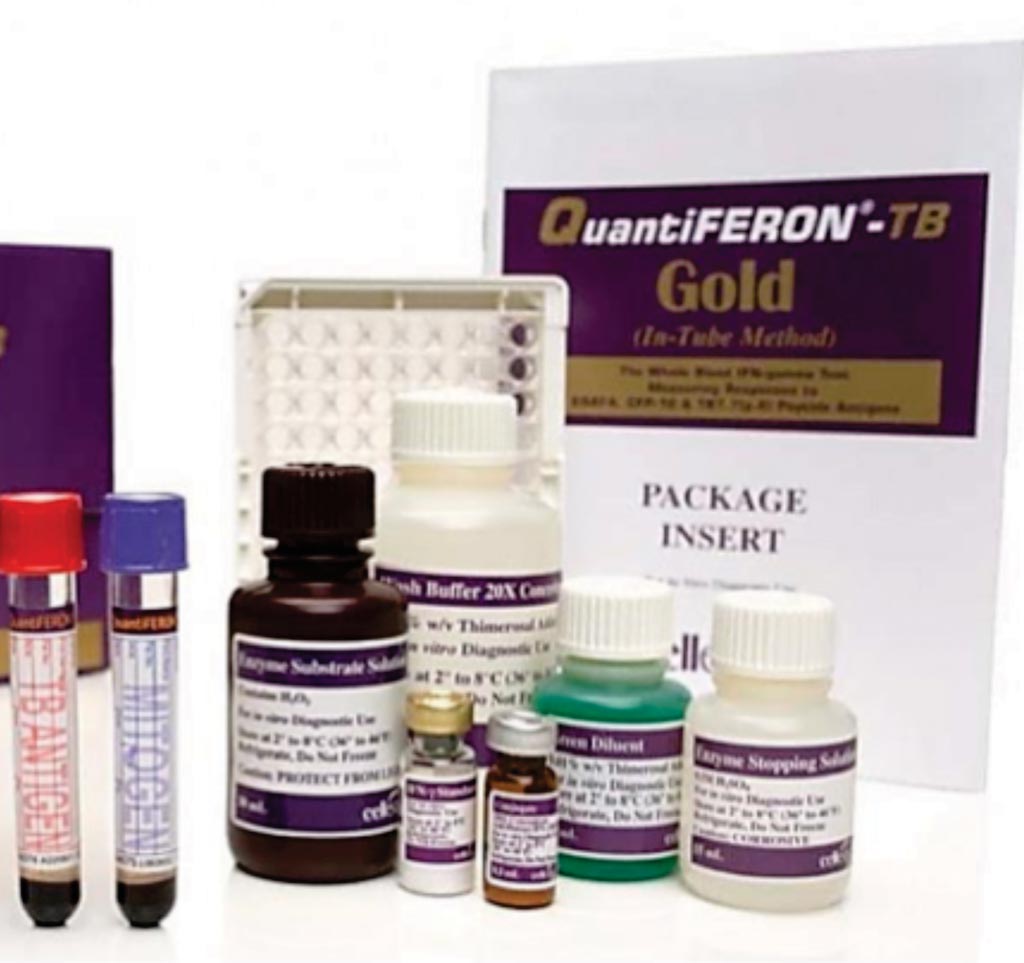TB Tests May Not Detect Infection in Exposed Individual
By LabMedica International staff writers
Posted on 17 Jul 2019
Mycobacterium tuberculosis is the leading infectious cause of death worldwide Exposure to M. tuberculosis results in heterogeneous clinical outcomes including primary progressive tuberculosis (TB) and latent tuberculosis infection (LTBI).Posted on 17 Jul 2019
M. tuberculosis infection is identified using the tuberculin skin test (TST) and interferon-γ (IFN-γ) release assay (IGRA), and a positive result may prompt chemoprophylaxis to prevent progression to tuberculosis. TST measures a delayed-type hypersensitivity reaction to purified protein derivative of the bacteria (PPD) and IFN-γ distinguishes between bacille Calmette–Guèrin (BCG) vaccination and TB infections.

Image: QuantiFERON-TB Gold (QFT) is an innovative blood test that measures the cell-mediated immune response of Mycobacterium tuberculosis infected individuals (Photo courtesy of Qiagen).
An international collaboration of infectious disease experts led by the Ragon Institute (Cambridge, MA, USA) recruited 79 Ugandans, and index individuals with pulmonary TB were identified by culture for confirmed pulmonary TB. A total of 2,585 household contacts of these index cases were enrolled and followed prospectively for up to two years, aimed at identifying development of LTBI based on serial TST at 0, 3, 6, 12, 18 and 24 months, or active TB based on clinical signs and symptoms of disease and culture evaluation.
The study’s evaluation for M. tuberculosis infection status consisted of three QuantiFERON-TB Gold assays with the first at enrollment in the re-tracing study, the next two over the next two years, and a TST following the last QFT. QuantiFERON-Gold-In-Tube (QFT-GIT) was used in the present study. A Luminex isotype assay was used to quantify the relative levels of antigen-specific antibody isotypes and subclasses.
The team found 198 individuals (8.2%) who lived in these households for more than 10 years but who never tested positive on the TST or the more modern blood test interferon-gamma release assay. This meant they were either "resistant" to the M. tuberculosis infection or not being detected by the two standard tests. These ‘resisters’ possess IgM, class-switched IgG antibody responses and non-IFN-γ T cell responses to the M. tuberculosis-specific proteins ESAT6 and CFP10, immunologic evidence of exposure to M. tuberculosis. Compared to subjects with classic LTBI, ‘resisters’ display enhanced antibody avidity and distinct M. tuberculosis-specific IgG Fc profiles.
W. Henry Boom, MD, a Professor of Medicine, and a senior author of the study said, “TB remains the leading infectious cause of death worldwide, and for that reason, these findings about natural defenses by a significant sample of 8% of people exposed to TB over more than 10 years is eye-opening. This may point us to a signature among people who appear to be naturally immune that could inform vaccine development. It also is possible that we need to reconsider the standard TB tests to take into consideration for very low-level cases of TB. The study was originally published on May 20, 2019, in the journal Nature Medicine.
Related Links:
Ragon Institute














